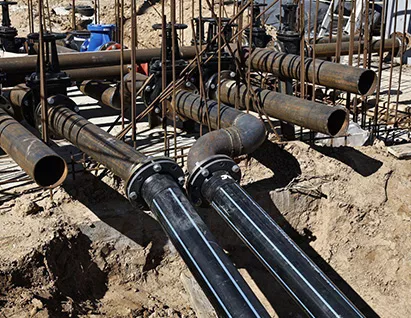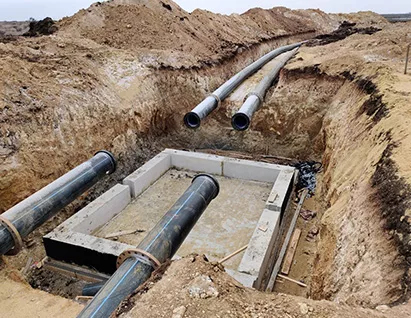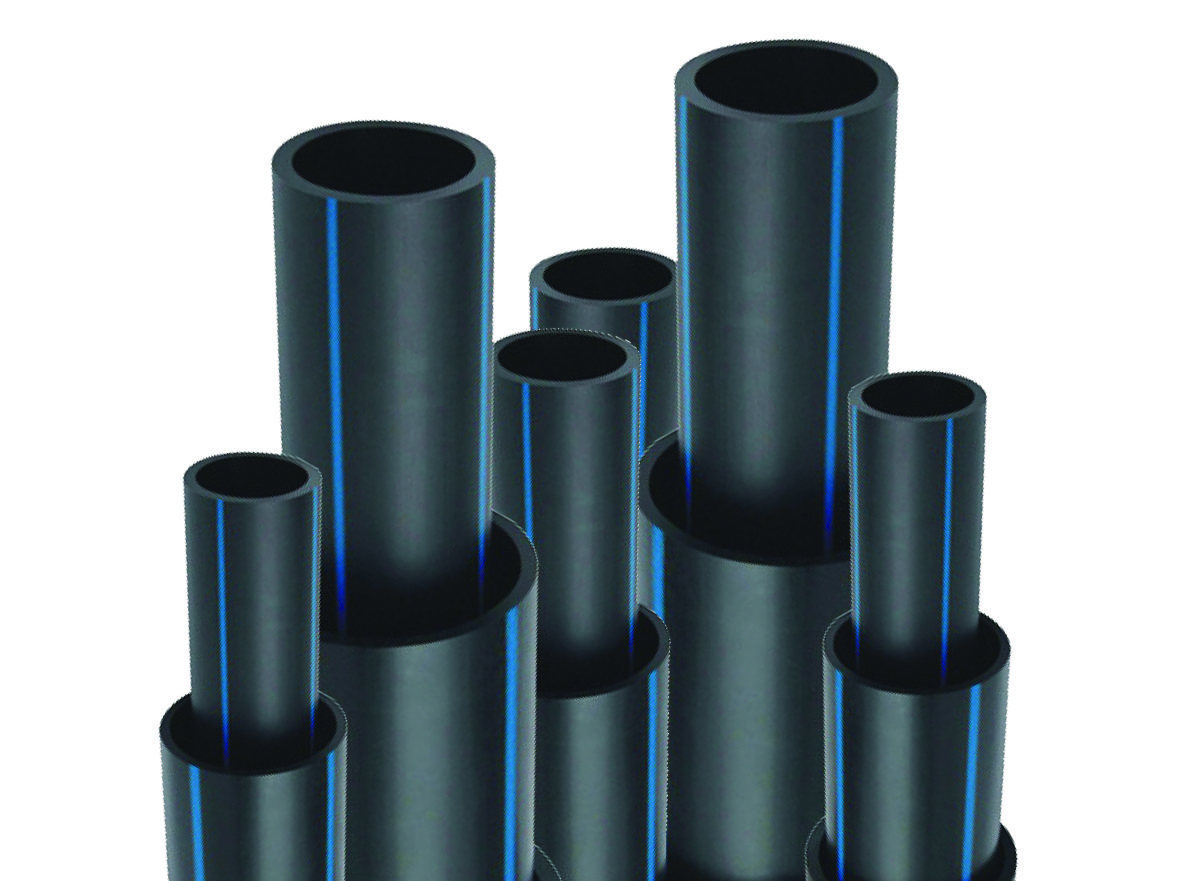The ultimate guide to selecting the best HDPE Pipe Supplier
Pipeline Manufacturer Spotlight: Discover the Ideal in the Industry for Your Next Project
In the domain of pipeline manufacturing, the option of maker can significantly influence the end result of your task. With a selection of firms supplying cutting-edge remedies and innovative products, comprehending the essential requirements for selection becomes crucial. Market leaders like Tenaris, Vallourec, and United State Steel are at the forefront of offering lasting and trusted alternatives. The inquiry stays: what particular factors should lead your decision-making process, and just how do these manufacturers separate themselves in a progressively competitive market? Discovering these aspects might expose understandings that might affect your next task's success.
Market Overview
In the pipeline manufacturing market, there exists a dynamic interaction of technological improvements and regulatory demands that shapes market techniques. This market is crucial for the transport of oil, gas, water, and various other fluids, demanding a robust understanding of both product buildings and ecological impacts. Manufacturers are significantly incorporating innovative materials and innovative production strategies to enhance the longevity and efficiency of pipes, guaranteeing they can withstand varying stress and ecological conditions.

Additionally, the surge of digital modern technologies has changed conventional manufacturing procedures, allowing for boosted monitoring and anticipating maintenance. This change not just increases functional efficiency however also assists in mitigating possible failures before they rise into essential problems. On the whole, the landscape of pipeline manufacturing is characterized by a continual evolution driven by advancement and conformity, positioning the field for future development and sustainability.
Secret Standards for Choice
Selecting the best pipeline producer entails careful consideration of a number of vital criteria that assure dependability, efficiency, and compliance with industry standards. Primarily, analyze the manufacturer's experience and credibility within the market. A well-established company with a proven performance history is most likely to provide top notch services and products.
Next off, examine the variety of products and specs provided. Manufacturers ought to offer a variety of options that provide to varied task requirements, including different pipe dimensions, products, and finish systems. Compliance with appropriate industry standards, such as ASTM or API, is essential, as it guarantees the items fulfill safety and security and efficiency standards.
Furthermore, consider the maker's technical capabilities. Advanced production strategies and high quality control actions can substantially affect the resilience and performance of the pipelines. Customer solution and support are likewise essential; a knowledgeable and receptive group can assist in smoother project implementation and deal with any kind of worries promptly.
Analyze prices structures and lead times. While cost-effectiveness is necessary, it ought to not endanger quality. Stabilizing these criteria will bring about a knowledgeable choice that aligns with task goals and regulative needs.
Top Pipeline Manufacturers
In the affordable landscape of pipeline manufacturing, numerous industry leaders stick out for their innovative technologies and dedication to sustainability. These leading manufacturers not only master supplying premium items yet also prioritize ecologically liable techniques in their operations. A summary of their contributions supplies beneficial insights into the future of pipeline services.
Market Leaders Introduction
Just how do sector leaders form the pipeline manufacturing landscape? The leading pipeline manufacturers play an important function in establishing market standards, driving innovation, and ensuring top quality assurance throughout the supply chain. Firms such as Tenaris, Vallourec, and united state Steel have established criteria for safety, efficiency, and sustainability, influencing not just their operations yet additionally their rivals.
These leaders invest considerably in study and advancement to improve product sturdiness and effectiveness. Their commitment to sticking to regulative compliance and international criteria promotes consumer trust fund and urges industry-wide adoption of best techniques. They commonly work together with stakeholders, including designers and construction companies, to ensure that their products fulfill particular project needs and environmental factors to consider.
Market leaders likewise focus on client partnerships, providing customized services and remarkable solution, which strengthens their market setting. By leveraging economic climates of range, they can deliver affordable pricing without compromising quality. Inevitably, the influence of these manufacturers prolongs past their products; they shape the future of pipeline modern technology and manufacturing processes, ensuring a resistant and sustainable infrastructure for various markets worldwide.
Cutting-edge Technologies Provided
What ingenious modern technologies are transforming the pipeline manufacturing market? Recently, leading pipeline suppliers have welcomed advanced innovations to improve effectiveness, integrity, and safety and security in their procedures. One substantial development is the integration of smart pipeline tracking systems, using Web of Points (IoT) sensing units. These systems supply real-time information on pipeline problems, allowing positive maintenance and minimizing the danger of failures or leaks.
Additionally, manufacturers are increasingly adopting advanced materials, such as composite pipelines, which supply boosted resilience and resistance to corrosion. These products not just expand the life expectancy of pipelines however also decrease operational costs over time. Moreover, additive manufacturing, or 3D printing, is transforming the production procedure. This innovation permits quick prototyping and modification of elements, streamlining supply chains and reducing waste.
Synthetic knowledge (AI) and artificial intelligence algorithms are additionally obtaining traction, maximizing style procedures and predictive upkeep routines. By evaluating substantial datasets, these innovations help determine potential problems prior to they develop, enhancing security and operational effectiveness. As these innovative innovations proceed to progress, they assure to shape the future of pipeline manufacturing, making certain that projects can be finished on time and within budget plan while keeping the utmost security criteria.
Sustainability Practices Highlighted
The ongoing innovations in innovative innovations within the pipeline manufacturing sector are complemented by a growing focus on sustainability techniques among top makers. These firms are increasingly embracing green methods, decreasing waste, and decreasing their carbon impacts throughout the production process.
Leading producers are prioritizing using recycled products, enhancing the lifecycle of their products. By executing closed-loop systems, they successfully make use of sources, therefore diminishing the environmental impact related to raw material extraction and processing. Furthermore, lots of companies are purchasing renewable resource resources to power their operations, additionally minimizing greenhouse gas discharges.
Pipeline producers are embracing sophisticated layers and materials that boost corrosion resistance and longevity, which eventually decreases the regularity of replacements and repairs. These sustainable techniques not just add to environmental stewardship but also line up with the expanding regulatory demands and market assumptions for accountable manufacturing.
Furthermore, cooperation with stakeholders to promote sustainability initiatives showcases a commitment to a greener future. By concentrating on sustainable practices, leading pipeline suppliers are not just enhancing their operational efficiency but likewise establishing a benchmark for industry standards, advertising an extra lasting pipeline facilities for all.
Innovative Technologies
The pipeline sector is observing a transformative shift via the assimilation of innovative technologies, especially in advanced materials growth and smart pipeline tracking systems. These improvements not only improve the durability and performance of pipes but additionally improve security and ecological stewardship. As makers welcome these innovative options, the future of pipeline framework looks progressively promising.
Advanced Materials Growth
Innovations in advanced products growth are our website transforming the pipeline manufacturing sector, driving enhancements in longevity, performance, and performance. The development of high-strength alloys and composite materials has made it possible for the manufacturing of pipelines that can withstand severe problems, including high stress and destructive settings. These materials not only prolong the lifespan of pipes yet also decrease maintenance costs, eventually resulting in boosted operational effectiveness.

Furthermore, developments in polymer scientific research have caused the creation of lightweight, versatile piping systems that are less complicated to set up and move. These innovations contribute to lower carbon impacts in pipeline tasks, straightening with worldwide sustainability goals. In enhancement, the combination of nanotechnology in material development is opening up new avenues for boosting the mechanical residential properties of traditional materials, leading to pipes that can withstand higher stress while maintaining stability.
As makers proceed to buy r & d, the pipeline sector is experiencing an unmatched advancement in product capacities. This concentrate on sophisticated products not just supports the expanding need for trusted framework yet likewise cultivates an affordable landscape where companies can differentiate themselves via premium product offerings. The future of pipeline manufacturing is certainly intertwined with these groundbreaking developments.
Smart Pipeline Checking Equipments
Smart pipeline tracking systems are changing the landscape of pipeline administration by integrating cutting-edge technologies such as IoT sensing units, expert system, and real-time information analytics. HDPE Pipe Supplier. These systems enable operators to keep track of the integrity and efficiency of pipes continuously, considerably decreasing the danger of failures and leaks
With the release of IoT sensors along pipeline routes, drivers collect important data on stress, temperature level, and flow rates. This information is sent in real-time to centralized monitoring systems, permitting prompt evaluation and action to anomalies. Advanced expert system algorithms evaluate this data to identify patterns, predict possible issues, and suggest preventative measures prior to they intensify into costly problems.
The application of clever tracking systems not only boosts functional effectiveness however likewise cultivates conformity with regulatory requirements. By giving in-depth reports and understandings, these innovations support better decision-making and risk monitoring. In addition, the assimilation of equipment knowing capabilities makes it possible for systems to enhance gradually, adjusting to altering problems and enhancing predictive precision.
As the market continues to embrace these advancements, wise pipeline tracking systems are poised to play a critical duty in making sure the safety and security, dependability, and sustainability of pipeline infrastructure. HDPE Pipe Supplier.

Study of Success
Success stories within the pipeline manufacturing sector brighten the effectiveness of ingenious services and partnership amongst stakeholders. One notable situation is the collaboration between a leading supplier and an oil company to carry out a cutting edge wise pipeline tracking system. The job significantly minimized leakage discovery times and boosted operational efficiency, showcasing the worth of innovative innovation in improving safety and lowering expenses.
Another example entails a manufacturer that efficiently incorporated sustainable products right into their pipeline building and construction. By working together with study organizations, they created a composite product that is not only sturdy however also eco-friendly. This development not just satisfied regulative requirements but also brought in new customers seeking lasting services.
A pipeline task in a tough geographical area demonstrated the significance of adaptive engineering techniques. The manufacturer collaborated with regional designers to design a pipeline that could hold up against severe weather, ultimately preventing service interruptions and making sure dependability for end-users.
These study exemplify exactly how critical collaborations, technical developments, and adaptive services in the pipeline manufacturing sector cause successful project outcomes, thus reinforcing the sector's commitment to providing top quality facilities while resolving customer needs successfully.
Sustainability Practices
As the pipeline manufacturing market evolves, the assimilation of sustainability methods has ended up being significantly crucial. Manufacturers are embracing green materials and procedures to minimize their ecological impact while maintaining high criteria of quality and safety and security. This shift is driven by both governing needs and an expanding understanding of environmental obligation among stakeholders.
One popular technique is using recycled products in pipeline manufacturing, which reduces the need for virgin resources and lowers waste. Companies are likewise spending in energy-efficient manufacturing techniques, consequently decreasing their carbon impact during manufacturing. Additionally, many producers have actually embraced water preservation techniques, making certain that water use is lessened and wastewater is dealt with successfully.
Sustainable transportation techniques are being utilized to provide products, consisting of maximizing logistics to reduce discharges. The commitment to lifecycle analyses permits manufacturers to examine the ecological influence of their products from inception to disposal, advertising not just sustainability but also long-lasting economic stability.
Eventually, the fostering of sustainability techniques in pipeline manufacturing signifies an important action toward straightening sector operations with international environmental objectives, making certain that future jobs are both accountable and innovative - American Plastics LLC HDPE Pipeline Manufacturer. - Pipeline Manufacturer
Future Fads in Pipeline Manufacturing
What innovations are on the perspective for pipeline manufacturing? As the sector progresses, a number of essential trends are forming the future of pipeline manufacturing. The combination of sophisticated products such as composite pipelines promises boosted toughness and resistance to rust, thereby expanding the life expectancy of pipelines. These products not only lower upkeep costs yet likewise boost security standards.

Sustainability stays a critical focus, with producers progressively focusing on green techniques. The development of biodegradable materials and the implementation of recycling programs are acquiring traction, aligning with global environmental goals.
Frequently Asked Questions
What Materials Are Commonly Used in Pipeline Manufacturing?
Common materials used in pipeline manufacturing consist of carbon steel, stainless-steel, polyethylene, and pliable iron (Permian Basin HDPE Pipe Supplier). Each product uses distinctive benefits pertaining to toughness, deterioration resistance, and viability for numerous applications within the pipeline sector
How Lengthy Does the Pipeline Manufacturing Refine Typically Take?
The pipeline manufacturing process typically ranges from a couple of weeks to numerous months, relying on variables such as product option, manufacturing capability, and personalization requirements. Efficient planning and control can substantially affect the general timeline.
What Are the Many Common Pipeline Sizes Available?
The most usual pipeline dimensions range from 2 inches to 48 inches in diameter. Irregularity exists based upon certain applications, market standards, and regional needs, making sure versatility to meet varied task demands and operational demands.
Are There Warranties Supplied on Pipeline Products?
Yes, several pipeline makers provide service warranties on their items, usually covering material flaws and craftsmanship. The period and regards to these warranties differ by producer, so it is important to assess certain policies prior to purchase.
Just how Do I Guarantee Correct Setup of Pipes?
To ensure correct setup of pipes, comply with sector requirements, make use of qualified specialists, carry out thorough website assessments, carry out quality assurance procedures, and secure conformity with regulations. Normal evaluations and maintenance even more enhance pipeline efficiency and durability.
Pipeline producers are embracing sophisticated coatings and materials that boost corrosion resistance and durability, which inevitably lowers the frequency of replacements and fixings. The pipeline industry is seeing a transformative change via the integration of ingenious modern technologies, particularly in advanced materials advancement and clever pipeline monitoring systems. As producers continue to spend in study and growth, the pipeline industry is seeing an unmatched advancement in product capabilities. Smart pipeline monitoring systems are transforming the landscape of pipeline management by integrating innovative innovations such as IoT sensing units, fabricated knowledge, and real-time information analytics. Yes, several pipeline suppliers offer warranties on their products, generally covering material problems and craftsmanship.